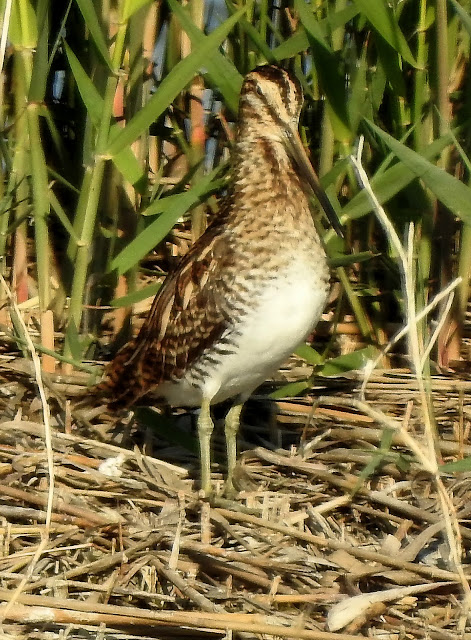When identifying the Common Snipe, look for the dark eye stripe bordered by lighter stripes above and below. Its wings are pointed, and it has short greenish-grey legs. The flight is characterized by rapid, zig-zag patterns accompanied by a sharp "scape" call when flushed.
The Common Snipe frequents marshes, bogs, tundra, and wet meadows across the Palearctic, finding solace in the dense vegetation of these wetlands.
This species breeds across a vast range from Iceland and the British Isles to northern Fennoscandia, through European Russia and Siberia, extending east to Anadyr, Kamchatka, Bering Island, and the Kuril Islands. Its southern range in Europe includes parts of Portugal, France, Italy, Bulgaria, and Ukraine, while in Asia, it reaches northern Turkestan, Afghanistan, and the Middle East. The Common Snipe is migratory, with European birds wintering in southern and western Europe and Africa, and Asian migrants heading to tropical southern Asia.



%2021.jpg)
%2020.jpg)
%2023.jpg)
%2020.jpg)
%2022.jpg)
%2024.jpg)
